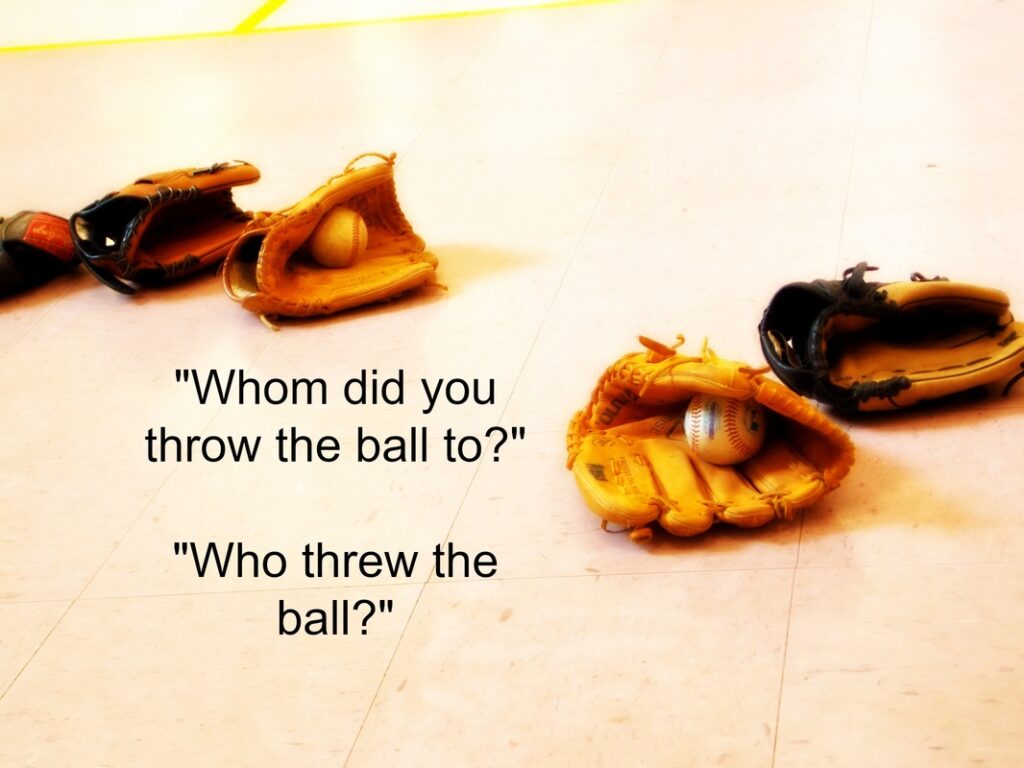Who or whom?
Rarely do we use whom in everyday conversation. Let’s face it. When is the last time you heard someone say (or heard yourself say) “Whom did you speak with on the telephone this afternoon?” Huh? Still, even though we may choose not to use whom when chatting with (or about) our best friend, we need to be sure to use who/whom correctly when writing. Even experienced writers can get hung up on what sounds right versus what is correct.
Instead of discussing pronouns, subjects, and objects (you can read about those on Grammar Girl) we’re going to give you the super simple way to know when to use who and when to use whom.
Think of who as married to he and whom as married to him — whom ends in m as does him so they go together very nicely.

So, what do we mean by “Who = He” and “Whom = Him?”
Simple: When trying to decide which pronoun to use, ask yourself if the answer to the question would be he or him. For instance, in the above graphic the answer to the question “Whom did you throw the ball to?” would be “I threw the ball to him.” Therefore, we must use whom since Whom = Him.
Conversely, the answer to “Who threw the ball?” must be he, because we don’t say “Him threw it.” Babies learning to speak might say that, but we’ll give them a pass just this once.
Finally, using the example that we started this post with — “Whom did you speak with on the telephone this afternoon?” it must be whom (him), because we did not speak with he on the telephone.
Astute readers might bring up the fact that if we are not talking about a male member of society, does the rule still apply? Indeed it does — you’ll need to pretend the subject or object is always male. If you can think of another trick that is not so gender-biased, feel free to share it in the comment section.
As always, all other questions concerning grammar, punctuation, and writing are welcome!